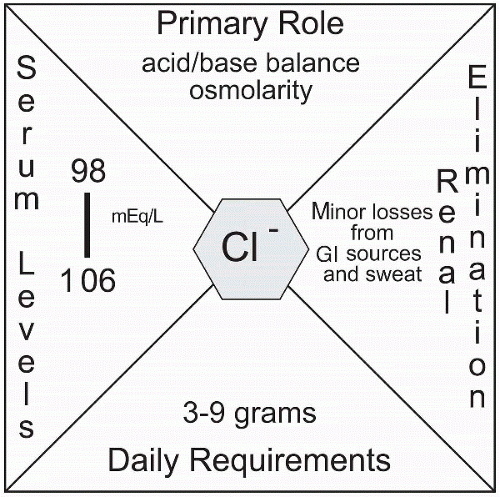Chloride
QUICK LOOK AT THE CHAPTER AHEAD
Chloride is a mineral electrolyte, found primarily in the extracellular fluid, that helps distribute body fluids by attaching to sodium or water. In the stomach it joins with the hydrogen ion to form hydrochloric acid. Serum chloride levels range between 98 and 106 mEq/L in the extracellular fluid and approximately 4 mEq/L in the intracellular fluid. In this chapter we discuss the function of chloride, its regulation, and how its balance is maintained in the body.
Serum chloride levels range between 98 and 106 mEq/L in the extracellular fluid and approximately 4 mEq/L in the intracellular fluid. Chloride, the most abundant anion in the extracellular fluid, can be found in gastric secretions, pancreatic juices, and bile. It is most plentiful in the cerebrospinal fluid, where it joins with sodium. Its negative charge allows it to bind and travel with the positively charged ions of sodium, potassium, calcium, and others.
 Serum chloride levels range between 98 and 106 mEq/L in the extracellular fluid and approximately 4 mEq/L in the intracellular fluid.
Serum chloride levels range between 98 and 106 mEq/L in the extracellular fluid and approximately 4 mEq/L in the intracellular fluid.Stay updated, free articles. Join our Telegram channel

Full access? Get Clinical Tree


Get Clinical Tree app for offline access

